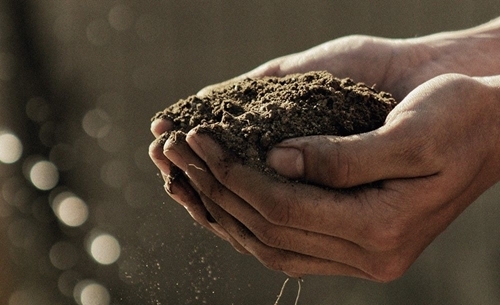
We have been waiting with increasing frustration for the publication of a draft Soil Health Action Plan for England (SHAPE) – a policy document that was promised in early 2021 during the debates over putting soil on the face of the Environment Bill (now Act). Two years later – we still have no Action Plan; just its poor relation – a weakened target and commitment in the just released Environmental Improvement Plan (EIP23) to improve and protect soil health through the lowest tier of the new farming scheme.
We and other NGOs are very concerned by this development. Whilst the EIP23 is part of Government’s commitments to leave the environment “in a better state than we found it” and a legal requirement under the Environment Act 2021, the downgrading of the target from all soils being sustainably managed by 2030 (as stated in the 25 year Environment Plan in 2018) to “bring at least 40% of England’s agricultural soil into sustainable management by 2028, and increase this to 60% by 2030” seems counter to that ambition. Furthermore, the Grade 1 soils that are in most need of protection, will most likely fall into the percentage not being sustainable managed, because they are the ones which are challenging to regulate.
Soils underpin all our land uses – including your house. As of April 2022 8.7% of England is developed and 63.1% is agricultural[1] (the oft cited 70% of soil is agricultural likely includes rough grassland from the forestry, open land and water land use category). Obviously there are regional differences. But these statistics show that 91.1% of land in England is of a non-developed use and therefore the health of these soils is important, not only in delivering sustainable food production but also other ecosystem services such as carbon storage, biodiversity and water regulation. A point acknowledged in the EIP.
We were never keen on the idea of an EU Soils Directive when we were EU members – trying to design a one-size-fits-all policy for climate, soils and cropping as disparate as Arctic Tundra and the Mediterranean would have been tricky, but we are now free to design a plan which reflects our own unique conditions. Consequently we had hoped that a SHAPE would connect all the soil measures into a coherent approach to monitoring and restoring soil health. A single metric is difficult given that different soil properties underpin different land uses and functions and therefore require different elements to be monitored. However it is generally felt that the mix of physical and biological indicators required would be possible through for example using organic matter content which is central to most soil properties as a proxy – but the value would need to be context driven.
But monitoring is not sufficient alone and so any metric must be supported by a Code of Practice and advice on good soil management. Again the Action Plan would provide this direction by bringing together the measures required to protect soil from erosion, increase soil organic matter, improve nutrient use efficiency and increase biodiversity whilst supporting sustainable food production and other land uses.
So over the coming week and months, we will be seeking to engage with both ministers and Defra in a call for a more coordinated approach to soil policy. After all peatland restoration, which remains a key initiative in pursuit of reaching net zero, is underpinned by the England Peat Action Plan and tree planting to increase tree cover in pursuit of reaching net zero, whilst also improving our timber resource, is supported by an England Trees Action Plan. So why has the Government seen fit to shelve the idea of a Soil Health Action Plan? Are those concerned about our soils not shouting as loudly as those concerned with peatlands and woodlands? Who knows. But what we do know is that we cannot sit back and not emphasise the importance of our soils to societal, economic and environmental ambitions, so we will be shouting more loudly in future.